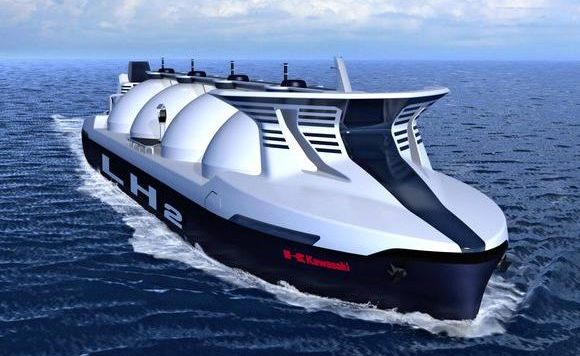Why it often pays to be second

We’ve had some interesting debate from shipowners of late on the benefits – or lack thereof – from being a pioneer in our industry. The sad conclusion one can take from these comments is it often pays to adopt, not create, technology – an indictment of the lack of inventive zeal across much of shipping. To be fair, however, this trait is seen in many other industries; it tends to take courage and deep pockets to be a champion of change.
Alex Saverys and his shipping behemoth, Compagnie Maritime Belge (CMB), are unquestionably groundbreakers – investing huge sums in developing all manner of new technology, not least in the field of hydrogen propulsion. Nevertheless, in conversation with us recently, he admitted others could profit at his expense.
“A point of constant debate in shipping is whether it makes financial sense to be an early mover. Looking back in shipping’s history, one could say that late followers have actually been better off than pioneers or early innovators in many cases,” Saverys pointed out.
Another big Belgian owner, Euronav, touched on a similar theme while outlining its sulphur cap plans recently. Under new management with CFO Hugo De Stoop taking over as CEO from arch-scrubber critic Paddy Rodgers, the tanker giant hinted at having a change of heart of the controversial use of exhaust gas cleaning systems. The company stated that come next year scrubber investments could give it a “second mover advantage” in learning the flaws of the first round of installations, allowing it to take a decision based on facts without having to speculate.
This following the herd instinct is not something unique to shipping. In business, pioneering novel initiatives takes a great deal of resources just to get off the ground – and plenty more to sustain these developments.
The regulatory side playing catch-up with tech breakthroughs is another hindrance to those leading the pack, something alluded to a few days ago by Hong Kong’s 300cubits, an early pioneer in the liner blockchain game.
“Many potential users simply shied away from trying, being not sure about what regulatory measures the authorities may take,” the company stated following its decision to stop promoting its TEU tokens.
Of course, there are always visionaries, it’s just all too rare to see these leading lights have the cash to follow through with their ideas. Perhaps that’s where the helping, nurturing hand of state funding needs to step up.
This article first appeared in Maritime CEO magazine. Splash readers can access the full magazine for free online by clicking here.


Sam, yes indeed, that is the bane of most innovations, unless they can be patent or copy right protected, which is very limited in the field of shipping and many other such industries. In the case of scrubbers, there may be an advantage in second movers, but in my view, the supply of HSFO will be constricted thereby nullifying any perceived delta between that and LSFO.
This is the case when no drastic changes are happening in the market. And this has been the case for shipping for some decates now. If we look at periods where we have seen more drastic changes happening in the market with the introduction of disruptive technologies or business models then one will notice that the late adopters where in most cases unable to follow. Look at the change between sails to motor engines and what happened to some prominent Greek shipping magnates who never made the step and suddendly they were left outside the game.
The question is are we living in such a period now where disruptive changes will cause this effect or is it just minor changes that will occur so it does not matter to be on the second or even the third wave of adoption?
It is an accepted wisdom that regulation follows innovation. Because immature regulation is one the risks of investing in technological development, that formula is also a barrier to innovation. It takes a brave entrepreneur with deep pockets and understanding/knowledgeable shareholders to invest in a new zero-carbon fuel that may take decades for nervous regulators to support.